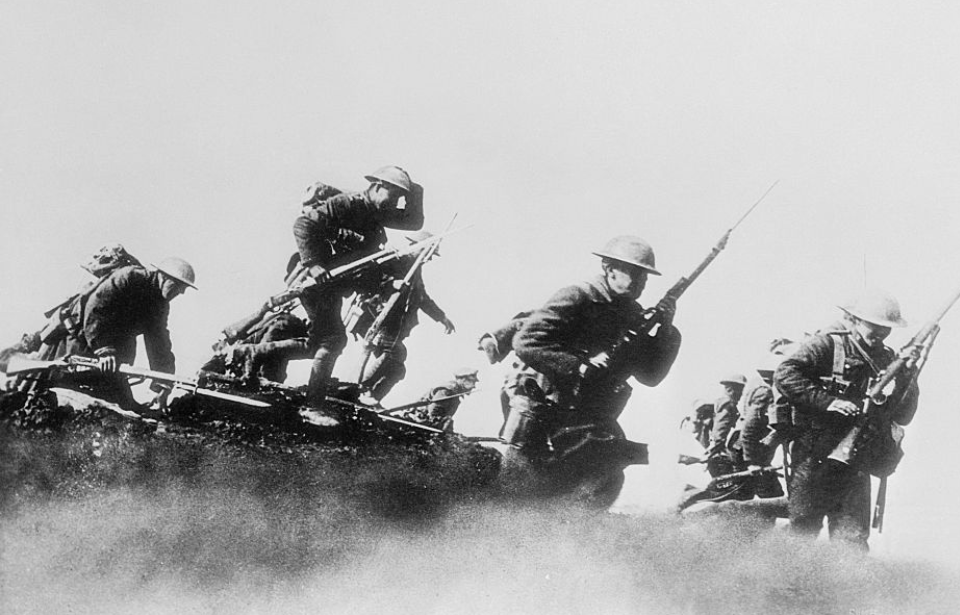The English language is constantly evolving, with new words being added all the time. This isn’t a new phenomenon, with terms and expressions from across time impacting modern language. The slang heard in the trenches of World War I has left a lasting impression on today’s vocabulary, although some terms haven’t stood the test of time.
Blighty
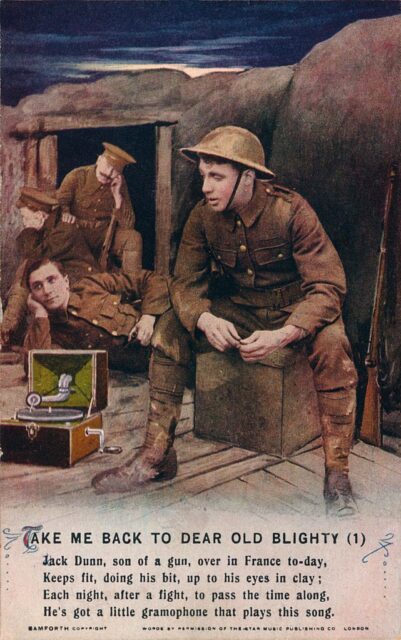
A World War I slang term that’s come to mean a lot to the British is “Blighty.” It’s become a common nickname for Great Britain, but sees its origins in the Urdu words “vilayat” and “vilayati,” which mean “inhabited country” and “foreign,” respectively.
In one regional variation, the Urdu term was “bilayati,” and this is the one the British military began using in the 19th century. Blighty was used not only as a term to refer to the country, but also to describe a wound. A Blighty wound was serious, but not disabling, and resulted in the injured soldiers being sent home (essentially, back to Blighty).
In a flap
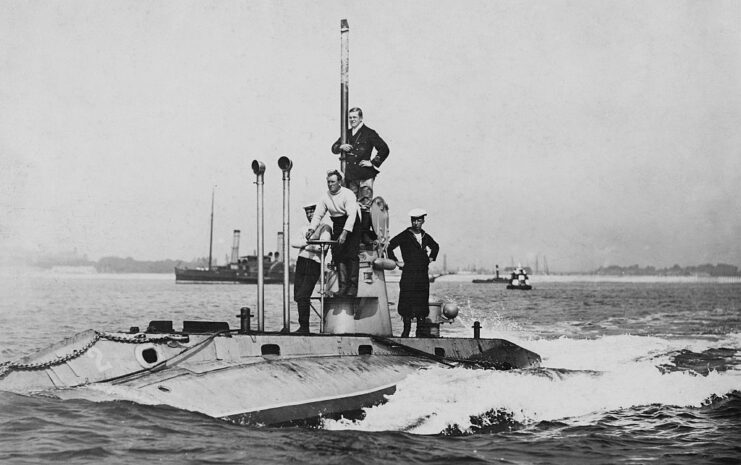
If you’re worried about something, you might be “in a flap.” This is a slang term that dates back to 1916, right smack-dab in the middle of World War I. It was generally used by naval personnel, and is believed to come from the flapping of restless birds.
The expression also led to the word “unflappable.” This first appeared much later – in the 1950s – and means “unflustered.”
No bon
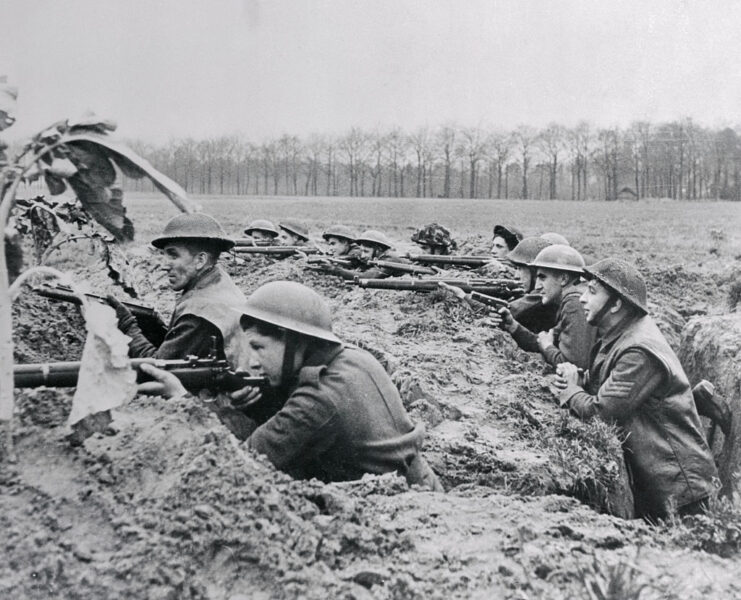
One slang expression from the trenches of World War I that didn’t stand the test of time was “no bon.” It’s a mixture of English and French commonly used by British troops – “no” is an English term, while “bon” is French. It translates to “no good,” as bon means “good” in French.
Napoo
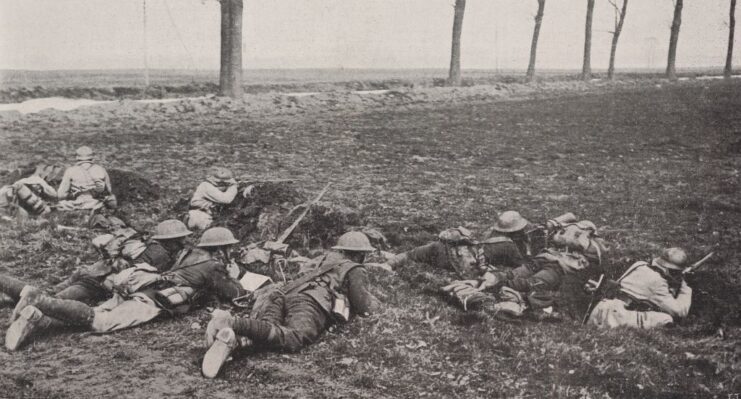
Another expression that didn’t make it into colloquial English is “napoo.”
This World War I-era slang term is another French derivative. It came from the French phrase, “il n’y a plus,” which means “there is no more.” The English-speaking soldiers who fought alongside the French in the trenches anglicized the phrase to one with an easier pronunciation: napoo.
It was commonly used to describe something that was finished, destroyed or dead.
Skive
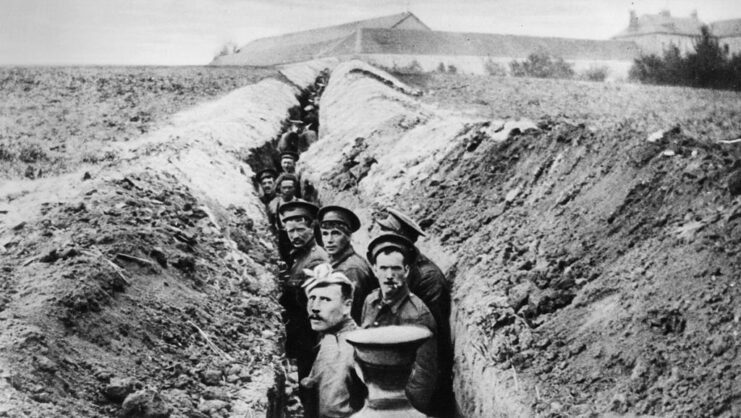
“Skive” is another word believed to have come from an anglicized French term. The exact etymology is a bit murky, but it was first used as military slang during World War I. Experts believe it may come from the French word “esquiver,” which means “to avoid” or “escape.” To skive was used to describe avoiding a task or job.
If it did derive from the French term, it would be one of the most prominent French-derived slang words to enter the English language.
Blimp
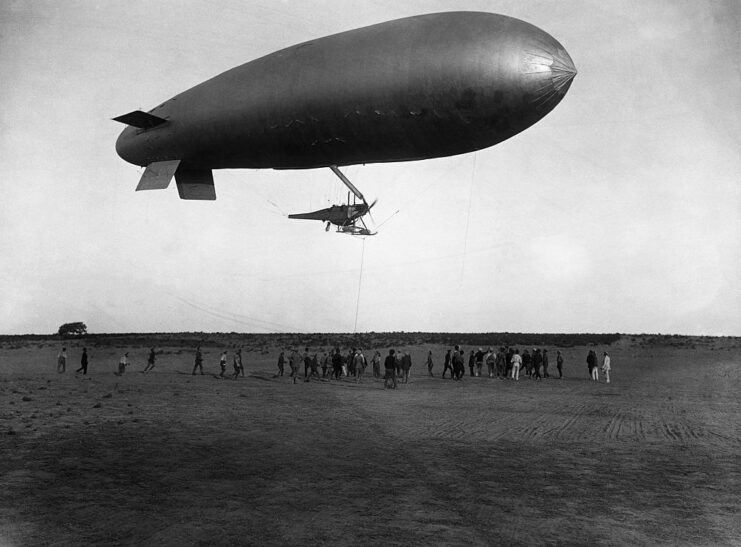
The airship known to us as a blimp first received this name during World War I. The only problem is that no one is completely sure how the name came about.
There are a few theories, with the most popular being the category these ships were placed in. According to this line of thinking, blimps were known as a “limp airships,” as they were non-rigid and could inflate and collapse. This, therefore, placed them in military inventories as Category B: Limp. If this theory is correct, the name is a combination of the category and identification.
Another theory, which some believe to be more plausible, is that the name was onomatopoeic – it mimicked the sound made by the airship when fully inflated.
Over the top
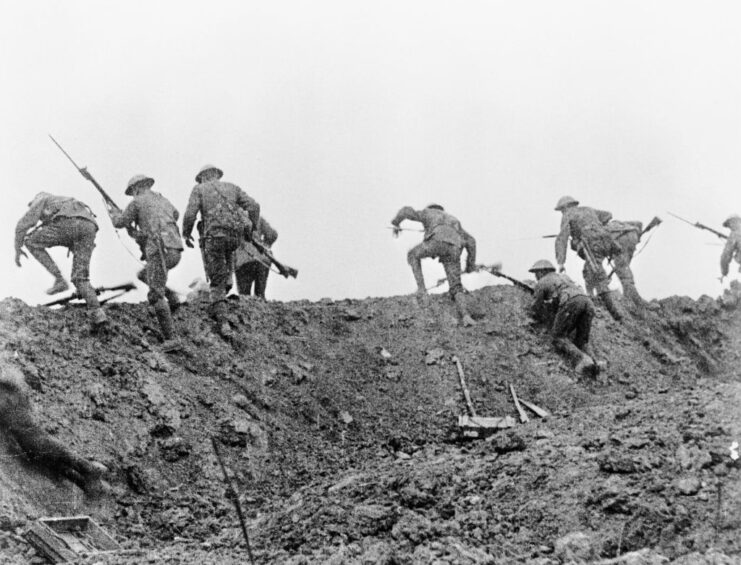
This World War I-era slang expression has seen a resurgence in recent years, but did die out post-conflict.
Today, it’s used to describe something that is excessive or unnecessary, which is quite far from its original meaning. During the First World War, the expression referred to an attack from the trenches, which required soldiers to climb over the sandbags or go over the top of the trench.
More from us: Royal Navy Slang That’s Found Its Way Into Everyday Life
At the time, the term was also used to describe the beginning of a dangerous venture that had a small chance of survival.
